 Study Medicine in Bulgaria if you are a medical aspirant who wants to get your Doctor degree in the best way. The choice of Bulgaria entails a great deal of responsibility: one of the most important ones is being prepared to boost the standard of medical services in a community and spend your time on people's emotions and health issues. As a doctor, you must work well in groups, solve problems, and communicate effectively. In addition, you must constantly seek to enhance these talents, broaden your knowledge in your field of work, monitor clinical research trends, and use everything you have learned thus far in your daily life. Finally, as a medical graduate, you will have many job options awaiting you, and the significant influence you have on the lives of others will be rewarded for your labor! Bulgaria has recently gained popularity among MBBS applicants all over the world. Students prefer Bulgaria to other European countries because of the low-cost MBBS in Bulgaria programs given by state universities. Students from varied cultures and ethnicities come to Bulgaria to fulfill their aspirations in the field of medicine. Many medical aspirants aspire to study medicine in Bulgaria at top medical universities. More than 5,000 international students and other specialities have been trained by Bulgarian universities as they strive to provide high-quality education that meets global standards.
Study Medicine in Bulgaria if you are a medical aspirant who wants to get your Doctor degree in the best way. The choice of Bulgaria entails a great deal of responsibility: one of the most important ones is being prepared to boost the standard of medical services in a community and spend your time on people's emotions and health issues. As a doctor, you must work well in groups, solve problems, and communicate effectively. In addition, you must constantly seek to enhance these talents, broaden your knowledge in your field of work, monitor clinical research trends, and use everything you have learned thus far in your daily life. Finally, as a medical graduate, you will have many job options awaiting you, and the significant influence you have on the lives of others will be rewarded for your labor! Bulgaria has recently gained popularity among MBBS applicants all over the world. Students prefer Bulgaria to other European countries because of the low-cost MBBS in Bulgaria programs given by state universities. Students from varied cultures and ethnicities come to Bulgaria to fulfill their aspirations in the field of medicine. Many medical aspirants aspire to study medicine in Bulgaria at top medical universities. More than 5,000 international students and other specialities have been trained by Bulgarian universities as they strive to provide high-quality education that meets global standards.
There are certain things you should know beforehand if you're planning to study medicine in Bulgaria. The following are some essential pointers to be kept in mind before applying to any Bulgarian university to study medicine:
Universities Offering the Course: You can choose to study medicine in Bulgaria at more than 250 universities offering the course.
Courses Recognised Internationally: The courses offered by Bulgarian universities are recognized and acknowledged by hirers and institutions all over the world.
Provision of Extra Classes: Medical schools in Bulgaria provide extra lectures in Bulgarian during the week to assist students in better integrating into the country.
Typical Duration of the Course: Medical education in the country is typically six years long.
Average Fees for Studying Medicine in Bulgaria: Medicine tuition in Bulgaria ranges between €7,500 and €9,000 per year.
All Bulgarian medical schools are internationally approved and recognized. They have been included in the WHO (World Health Organisation) and FAIMER (Foundation for Advancement of International Medical Education and Research) listings for global medical schools, as well as the IMED (International Medical Education Directory) and Avicenna Directories, which are both free public resources of medical universities around the world.
Here are certain pointers about the recognition of a degree in medicine from Bulgaria:
NEAA Accreditation: Degrees granted by Bulgarian higher educational institutions are approved on a national level by the NEAA (Bulgarian National Evaluation and Accreditation Agency), which is an associate member of the ENQA (European Association for Quality Assurance in Higher Education) and the EQAR (European Quality Assurance Register for Higher Education). The NEAA, which is recognized by the EU, grants accreditation to all Bulgarian Medical Universities.
Global Recognition: Graduates of any Bulgarian Medical University can practice in any country they choose because all Bulgarian Medical School Degrees are recognized and accredited worldwide by the respective local bodies responsible for accrediting graduate medical training programs, such as ACGME in the United States and GMC in the United Kingdom, to name a few.
WHO (World Health Organisation): The World Health Organization has also recognized many Bulgarian universities for providing excellent education for medical students. In fact, the degrees provided by these medical colleges are approved and recognized by the WHO as well.
FAIMER: FAIMER is responsible for the promotion of excellent educational standards for medical degrees at universities across the globe.
EU Recognition: Graduates who want to practice in any EU member state only need to register with the relevant government entity or agency before being granted residency to practice or pursue specialization.
Non-EU Recognition: Graduates who want to practice in non-EU nations must go through the proper assessment procedure outlined by regulating authorities in their individual Ministry of Health.
If you cannot decide whether you should pursue studying medicine in Bulgaria, have a look at the following reasons why you should go ahead with the decision:
Variety of Universities: Bulgaria has more than a hundred top-class universities that offer you the best education in medicine with an experienced and seasoned faculty.
Easy Process of Admission: The admission process for studying medicine in Bulgaria is extremely hassle-free and easy-going.
Recognition by International Bodies of Organisations: When you pursue medicine in Bulgaria, your degree is accredited by the National Medical Commission(NMC) and the World Health Organization (WHO).
International Career Opportunities: A Bulgarian degree in medicine is recognized across the globe which allows you to practice as a doctor in any part of the world.
Reasonable Fees: the medical universities in Bulgaria don't put much burden on students’ pockets and offer education at very affordable rates, with the provision of installments.
Practical Knowledge: Students pursuing medicine from Bulgaria get a chance to work with and learn about the most advanced technology in the medical field and gain hands-on experience in clinics and hospitals.
Have a look at the following eligibility criteria that should be fulfilled by you before applying for a degree in medicine in Bulgaria:
Educational Requirement: Students must have completed 10+2 educational level with a minimum grade average of 60%, from a recognised educational board.
Subject Requirements: Students must have Physics, Chemistry and Biology as compulsory subjects during their high-school education.
Age Limit: Students must be older than 17 years and younger than 25 years at the time of application.
Qualifying Examination: Students need to qualify the NEET (National Eligibility Cum Entrance Test) as an eligibility criteria.
English Proficiency Requirement: Candidates must have English proficiency at the B2 level. However, it is optional, if the bachelors degree is not in English, and depends on the university and course. Candidates can prove their proficiency in the language through the following tests:
IELTS Academic (Overall Band Score 6.5) or higher
ESOL International (CPE 180 - 199, CAE score of 190, FCE score of 180 – 190) or higher
TOEFL iBT (computer-based test) – minimum score of 80
TOEFL PBT (paper-based test) – minimum score of 550
PTE Academic (60 overall score) or higher
There are a variety of universities in Bulgaria to pursue medicine. The following is a table representing the best Bulgarian universities for studying medicine:
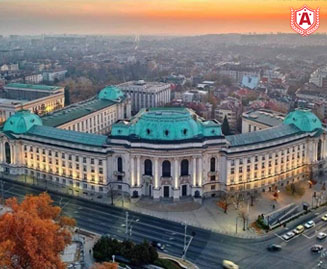
| Year of Establishment | 1888 |
| National Ranking | 1st |
| No. of Indians Students | 360+ ( Existing and Passout Students ) |
| FMGE Passing Percentage | 35% |
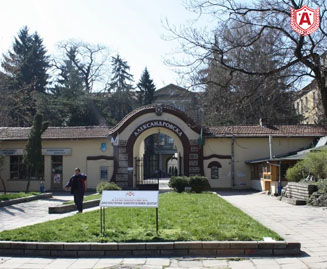
| Year of Establishment | 1917 |
| National Ranking | 2nd |
| No. of Indians Students | 550+ ( Existing and Passout Students ) |
| FMGE Passing Percentage | 40% |
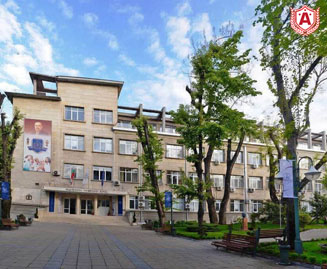
| Year of Establishment | 1961 |
| National Ranking | 5th |
| No. of Indians Students | 300+ ( Existing and Passout Students ) |
| FMGE Passing Percentage | 32% |
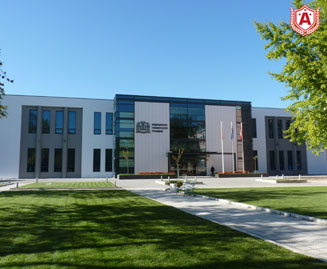
| Year of Establishment | 1945 |
| National Ranking | 9th |
| No. of Indians Students | 370+ ( Existing and Passout Students ) |
| FMGE Passing Percentage | 39% |
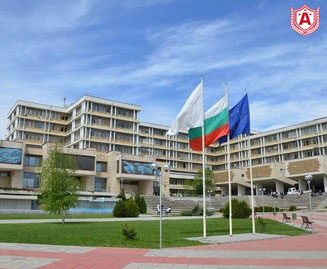
| Year of Establishment | 1995 |
| National Ranking | 15th |
| No. of Indians Students | 250+ ( Existing and Passout Students ) |
| FMGE Passing Percentage | 25% |
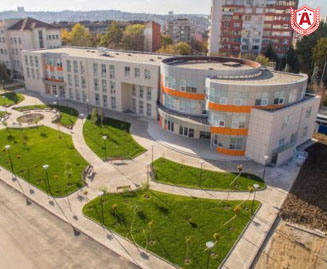
| Year of Establishment | 1974 |
| National Ranking | 19th |
| No. of Indians Students | 450+ ( Existing and Passout Students ) |
| FMGE Passing Percentage | 43% |
Universities in Bulgaria offer medicinal courses at very affordable and reasonable prices for all kinds of people from various sections of the economy. The following is a table representing the best Bulgarian universities for studying medicine and their respective fees:
|
University |
Fees |
|
SOFIA UNIVERSITY "ST. KLIMENT OHRIDSKI" |
7700 EUR/year |
|
MEDICAL UNIVERSITY - SOFIA |
9000 EUR/year - FIRST YEAR |
|
MEDICAL UNIVERSITY - VARNA (Medical University "Prof. Dr. Paraskev Stoyanov" - Varna) |
9000 EUR/year - FIRST YEAR + 230 EUR application fee |
|
MEDICAL UNIVERSITY - PLOVDIV |
9000 EUR |
|
TRAKIA UNIVERSITY - STARA ZAGORA |
7500 EUR/year -(1st-5th years) 6th year - 7000 EUR |
|
MEDICAL UNIVERSITY - PLEVEN |
8500 EUR/year - FIRST YEAR 200 EUR Exams fee + 30 EUR Registration Fee |
The list below mentions some essential documents you should have at the time of application:
Application Documents: Completed university application form.
Educational Documents: 12th secondary education degree, 10th mark sheet, and bachelors degree transcript, or the European equivalence certificate of the Bachelors degree (we assists in issuing it).
Language Proficiency Documents: English Proficiency certificate – B2 level (Optional, If Bachelor’s degree is not in English, and depending on the university and course. Option for English entry exam if proficiency can’t be proved otherwise).
Character Proofs: 2 letters of recommendation (in English, containing recommendations from the teacher and/or employer, contacts, signature, and seal of the recommender). However, this is optional and depends on the university and course.
Cover Letter: Curriculum vitae in English. However, this is optional and depends on the university and course.
International Documents: A valid copy of the international passport of the applicant (only those pages with the photo and data).
Identification Documents: 6 recently taken color photos in passport size.
Diploma Equivalency Certificate issued by any of the Regional Departments of Education in Bulgaria: The Equivalency Certificate is required by the Bulgarian Ministry of Education and Science to issue an Admission Certificate, which you will need when applying for a visa. The Regional Departments of Education grant the Equivalency Certificates within 30 days following the submission of the application and the prescribed documents.
The course is of an average duration of 6 years divided into three 3 stages. The degree in medicine in Bulgaria has a coursework of 5 years which is divided into pre-graduation training following the 10th semester (amounting to 135 working days) and two practice terms for one month each (each 150 hours long) following the sixth and the eighth semester. The 10 semesters and 1 year of state clinical internships eventually help you get a degree.
Most Bulgarian universities teach their medical programs in English and require students to qualify for an entry-level English test. However, students who have grade proofs of the following are exempted from the test:
IELTS Academic (Overall Band Score 6.5) or higher
ESOL International (CPE 180 - 199, CAE score of 190, FCE score of 180 – 190) or higher
TOEFL IBT (computer-based test) – minimum score of 80
TOEFL PBT (paper-based test) – minimum score of 550
PTE Academic (60 overall score) or higher
The procedure for application for medicine courses in Bulgaria typically begins around April and the enrollment window for most universities will close in late September or early October:
| University | Intake |
|---|---|
| SOFIA UNIVERSITY "ST. KLIMENT OHRIDSKI" | Until August 2023 |
| MEDICAL UNIVERSITY - SOFIA | 1 August 2023 until 20 October 2023 |
| Medical University "Prof. Dr. Paraskev Stoyanov" - Varna | 1 May 2023 until 15 July 2023 |
| MEDICAL UNIVERSITY - PLOVDIV | 1 March 2023 until 14 July 2023 |
| TRAKIA UNIVERSITY - STARA ZAGORA | 1 April 2023 until 1st JULY 2023 |
| MEDICAL UNIVERSITY - PLEVEN | 1 June 2023 until 1 October 2023 |
Are you looking for admission to study medicine in Bulgaria? Our team can help, we understand studying abroad can be a daunting task. So, we assist you throughout the process as follows:
Consult with us: Connect with our team to understand all the requirements. Our team will analyze all the profiles and help you find courses and universities as per your requirements.
Test preparation: If required, we also provide IELTS, TOEFL, and PTE training. So, students can prepare and apply for colleges with us.
Documents: We will help students to collect all the required documents for application. Our team will guide you through all the requirements to proceed with the application.
Application: After documents and test results, we will apply for universities on your behalf. You will receive an offer letter by email from selected universities.
Visa process: After the offer letter, we also assist students through the visa process, application, and all other requirements including an interview if applicable.
The whole process of studying abroad can take you on a roller coaster ride sometimes. There are numerous factors to consider while applying for a program at a foreign institution. The most crucial question for Indian students is if the program is recognized in India. The National Medical Commission (NMC) recently published a new Gazette published on November 18, 2021 with the updated norms and regulations for studying MBBS abroad focuses on many key points, as stated below.
MBBS Abroad Course Duration: It states that the MBBS degree will not be valid until the course is completed in 54 months. It should be noted that the 54-month time frame does not include an internship. Following the completion of the 54-month program, a 12-month internship at the same institute is required. The course should not take more than ten years to complete from the date of entrance.
Requirements for Eligibility to practice in India after completing an MBBS in another country:
Students must be eligible to practice medicine in the country where they complete their MBBS/MD program.
Students must complete a 12-month internship in India after completing their studies at a foreign university.
Students must pass the National Exit Test (NEXT) or a similar NMC screening test.
Multiple campus studies are not permitted: According to this Gazette, the entire degree must be obtained from a single institute. The courses completed at various institutes will be invalid.
Subjects that must be covered: According to the Gazette of India for MBBS Abroad, students should have covered the following subjects in their theory and/or internship. The clinical subjects listed below should be included in their curriculum, and the degree would be recognized in India only if the subjects are covered:
Community Medicine
General Medicine
Psychiatry
Pediatrics
General Surgery
Anesthesia
Obstetrics and Gynaecology
Orthopedics
Otorhinolaryngology
Ophthalmology
Dermatology
Emergency or Casualty services
lab services and their sub-specialties.
Who is it applicable to?
This rule applies to students enrolling in MBBS programs abroad from the date of publication of this Gazette, which is November 18, 2021.
This does not apply to students who have already enrolled in or started studying medicine.
This does not apply to those who obtained their degree before the implementation of this rule.
It does not apply to people who have been specifically exempted by the Indian government.
Have a look at the following differences between studying medicine in India vs studying medicine in Bulgaria to make a better-informed choice:
| Criteria | MBBS in India | MBBS Abroad |
| Qualifying Examination | You have to take the NEET or National Eligibility cum Entrance Test in order to get admission to medical colleges in India. | NEET is valid in foreign countries as well, but there may be other individual qualifying criteria of the universities. |
| Quality of Education | The quality of education in India is good, but may not match the international standards. | The quality of education offered at foreign universities is top-notch and provided keeping the world medicine standards in mind. |
| Exposure | The exposure at medical colleges in India is limited to the country. | On the contrary, when you study abroad, you will be presented with a host of opportunities that will allow you to explore the possibilities that this field has to offer. |
| Fees | The fees that you will require to pay in private medical colleges will shake your finances and is usually for not students coming from weaker financial backgrounds. This is a huge drawback for those who wish to get access to quality education but cannot afford it. | When you choose to study abroad in countries like Bulgaria, you get a more affordable way to study medicine at the top colleges. Furthermore, you will also have many scholarship and grant options which can provide relief from the financial burdens of studying abroad. |
There are a variety of job opportunities that are available to you in the medical field once you complete your medical degree from Bulgaria. Some of the many careers you can embark upon are:
General Practitioner: General application Patients are initially diagnosed and treated by doctors. When patients feel symptoms and are unaware of what is wrong with their bodies, general practitioners are the first line of consultation.
Cardiologist: Cardiologists specialize in illnesses of the heart and blood vessels. Heart attacks, cardiomyopathy, and congenital heart disease are all heart-related disorders.
Pathologist: Pathologists diagnose human diseases using laboratory equipment. They examine human tissues and fluids to assist other healthcare providers in making accurate diagnoses.
Various Bulgarian universities offer hostel facilities to their students pursuing medicine in the country. The university accommodation facilities are provided at a much cheaper rate than private housing facilities. Here is a general outline of Bulgarian universities and their respective provision for accommodation or hostels:
MEDICAL UNIVERSITY - VARNA: There is no provision for a hostel at the university.
MEDICAL UNIVERSITY - PLEVEN: There is limited availability of the accommodation facilities of the university, but there are added private rooms available at a low cost.
TRAKIA UNIVERSITY - STARA ZAGORA: The university provides a hostel facility. The cost for a university hostel is 150-160 BGN + utility bills for 1 shared room with 2 beds.
Bulgaria offers a life that is much more easily affordable than most other European countries. Go through the following table to get a gist of what it costs you to live in Bulgaria as a student:
| Type | Expense |
| Utilities (monthly average) | 200BGN ($125) |
| Rent to be paid every month for an apartment with 1 bedroom | 710BGN ($440) |
| Monthly public transport pass | 50 BGN ($31) |
| Meal (reasonable restaurant) | 12BGN ($7.50) |
Why should one pursue medicine from Bulgaria?
Some reasons to pursue medicine from Bulgaria include the most cutting-edge academic infrastructure, hands-on experience in the field of medicine, and an internationally recognized medical degree.
What documents are required for medicine from Bulgaria?
Some documents required for medicine from Bulgaria are your educational transcripts, passport, letters of recommendation, etc.
What are the best universities to pursue MS in Bulgaria?
Some of the best universities to pursue medicine in Bulgaria are Medical University - Sofia, Medical University - Varna, and Medical University - Plovdiv.
What is the student living cost in Bulgaria?
An estimated €17,000 per year, including expenses for food, lodging, transportation, and other utilities, can be expected to be spent towards living costs by a student.
Do Bulgarian universities provide hostel facilities?
Yes, most Bulgarian universities offer hostel facilities. Check their websites individually to get the most precise information on student accommodation.
What careers can one take up after studying medicine in Bulgaria?
One can become a general physicist, cardiologist, pathologist, and more after studying medicine in Bulgaria.
Get free 1-on-1 counselling with our experts